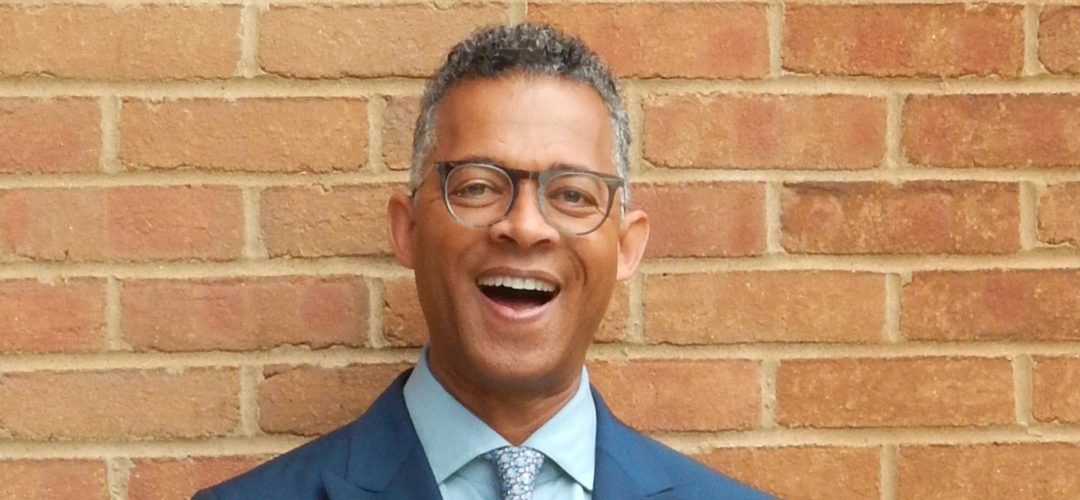Q&A With Greg Ratliff, Vice President
April 01, 2019
Introducing Greg Ratliff, who joined Rockefeller Philanthropy Advisors in March 2019 as our newest Vice President. We had a chance to sit down with him and discuss his background, his views on the sector and what he is excited about in his new role.
Greg’s pre-RPA career highlights include ten years managing the MacArthur Foundation’s impact investing portfolio and ten years at the Bill and Melinda Gates Foundation, hired to launch its higher education program.
Welcome to RPA! We are very excited to have you join us as our newest Vice President in Advisory. Tell us a bit about your journey here and how you first got involved in philanthropy.
I’ve spent my entire career working to provide options that improve life for low income and disadvantaged populations; and more than 25 of those years have been spent in philanthropy.
I was first exposed to philanthropy in the early 1990s, when the MacArthur Foundation was looking to hire a program officer to run its PRI portfolio. They wanted a “banker with values,” and I had spent a few years making small business loans to women and minority owned businesses on the South Side of Chicago, so I fit the bill.
My transition into grantmaking was truly disorienting. The values piece was easy, but the unwieldy discussions about impact and outcomes, what I saw as the overly complicated processes, and the timidity when trying to simply get something done tested my patience. Understanding the language, raising my thinking to the “system” level, and attacking problems comprehensively were not foreign to me, but I found that the conversations often lost direction quickly. Over time, I realized that grounding the conversation on the impact we want to have can be an anchor–a touchpoint we could use to stay on course. I ended up spending ten years at MacArthur, then with ten years at the Gates Foundation after that, I became truly entrenched in the sector.
What do you see as the biggest challenge in the philanthropic sector today?
I think the big challenge in philanthropy right now revolves around big money and impact. There are so many new foundations with tremendous asset bases that have adopted a “strategic” or systems-level approach (the philanthropy I know has ALWAYS been strategic). They are investing tens of millions to drive their solutions into the field. This is good for society–but I worry about a couple of things.
First, identifying a strong leverage point to organize a theory of change or action is no easy task. I do believe the new entrants are very smart about their work, but I have seen some distill complex social problems into simple solutions that end up not resolving the issue. One example of this is when the Gates Foundation spent millions improving educational outcomes by improving teacher skills. The problem with looking at only this slice of educational reform was that alone, even the best skilled teachers couldn’t change the system. This ultimately became evident, and Gates ended up shifting to focus on the school more broadly as a unit of change. So a key challenge is, how can we create models for our work that capture the complexity of the real world and improve our ability to bring about positive changes?
Second, with all the money coming into the market, I worry about its ability to distort the regular functioning of the capital markets or flow of funding streams in a field. In too many instances, I’ve seen foundations provide major funding for a program that produces impact, but the minute that foundation steps back, lost funding leads to a shutdown of the program. Happily, sustainability is one of many current buzzwords that drive philanthropic behavior, but knowing how to successfully exit and leave behind strong capacity to carry on remains elusive.
What excites you about being at RPA?
I’m really excited to be working with an amazing team of colleagues! My new colleagues are so smart it fills my heart with joy. The passion and commitment that people bring is amazing.
I came to RPA because I saw an opportunity to influence large portfolios of money coming into philanthropy and want to contribute to framing its strategy and delivery in a manner that can overcome the challenges I mentioned (as well as others). I have a penchant for working at organizations when they are at an inflection point. I often find the greatest degrees of freedom to use my creativity to help organize ideas, systems, and approaches to accomplish great things. An example of this is RPA’s newest tool, the Philanthropy Framework, which presents a structure for foundations and other philanthropies to re-evaluate their approach and align for increased impact. I feel like RPA is poised to expand its sphere of influence and I look forward to driving greater use of all the new systems that will support the organization in this next phase of growth.
Back to News